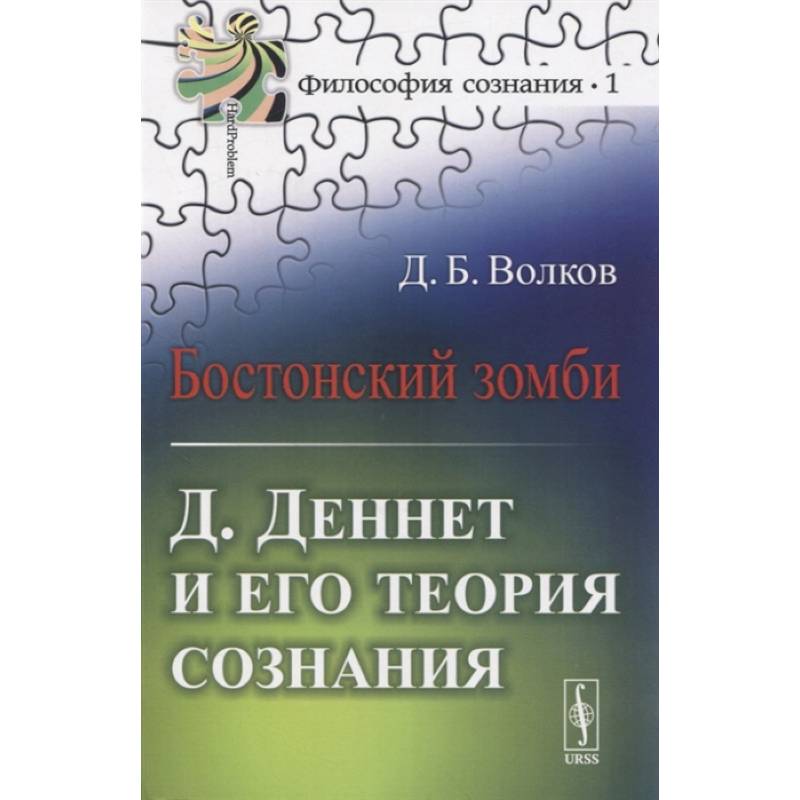Boston Zombie: D. Dennett and his theory of consciousness
Please sign in so that we can notify you about a reply
Consciousness is one of the most mysterious phenomena in nature, for hundreds of years it has occupied the minds of philosophers. But among their conclusions, there was still no completely satisfactory. Only in recent decades have there have been significant progress in the issue of studying the nature of consciousness. In connection with the discoveries in neurophysiology, cognitiveness, and the construction of artificial intelligence, there was hope to explain this amazing phenomenon.
One of the most famous modern thinkers Daniel Dennet is convinced that his approach in the study of consciousness guarantees success. This book is written about this approach, about the theory of Dennet"s consciousness. But it can hardly be considered an apologetic literature, the author of the book, despite the general sympathy for the American philosopher, tried to objectively evaluate Dennet"s arguments. Can they really explain subjective internal experience? Do they give exhaustive answers? Are Dennet’s mental experiments so successful, and are there no internal contradictions in them? Was the American philosopher adequately respond to criticism from his main opponents, J. Serla and D. Chalmers, and convince other philosophers of his own rightness?
On the pages of this book, a living discussion unfolded between the best philosophers of the English -speaking world and our compatriots. The conclusions of the readers of the book are unlikely to be the same, but none of them, going on an intellectual journey through the modern theory of consciousness, will return to where the path began. The worldview will change, ideas about the fundamental internal unity of the personality will change, that the knowledge of his own inner world is full and unmistakable, that the subject has direct access to meanings and meanings. Obvious facts may seem an illusion, because it is no coincidence that the dennet was called the devil of materialism and the philosophizing the consciousness of philosophers
One of the most famous modern thinkers Daniel Dennet is convinced that his approach in the study of consciousness guarantees success. This book is written about this approach, about the theory of Dennet"s consciousness. But it can hardly be considered an apologetic literature, the author of the book, despite the general sympathy for the American philosopher, tried to objectively evaluate Dennet"s arguments. Can they really explain subjective internal experience? Do they give exhaustive answers? Are Dennet’s mental experiments so successful, and are there no internal contradictions in them? Was the American philosopher adequately respond to criticism from his main opponents, J. Serla and D. Chalmers, and convince other philosophers of his own rightness?
On the pages of this book, a living discussion unfolded between the best philosophers of the English -speaking world and our compatriots. The conclusions of the readers of the book are unlikely to be the same, but none of them, going on an intellectual journey through the modern theory of consciousness, will return to where the path began. The worldview will change, ideas about the fundamental internal unity of the personality will change, that the knowledge of his own inner world is full and unmistakable, that the subject has direct access to meanings and meanings. Obvious facts may seem an illusion, because it is no coincidence that the dennet was called the devil of materialism and the philosophizing the consciousness of philosophers
Author:
Author:Волков Д.Б.
Cover:
Cover:Soft
Category:
- Category:Politics & Social Science
- Category:Phylosophy
- Category:Reference books
Publication language:
Publication Language:Russian
Paper:
Paper:newspaper
Age restrictions:
Age restrictions:12+
ISBN:
ISBN:978-5-9710-8601-7
No reviews found
